NC in Focus: Top Employer by State and County, 2019

The state is the largest overall employer in North Carolina with over 82,000 public employees as of November 2019; over a quarter (27%) of them work for the University of North Carolina system alone. Meanwhile, Wal-Mart is the largest private employer in North Carolina, along with twenty-one other states. (Note: The map in the previous link erroneously classifies the UNC System as a private employer.)
What does the employment landscape look like at the county level? Have things changed since we last reported in 2015? Data is from 2019 Q2.
In 55 of North Carolina’s 100 counties, the largest employer was a public school district. (In some counties, this is called a school board of education but they mean the same thing.) Some large school districts like Wake County Public Schools employed well over a thousand individuals, while others (Hyde County Board of Education, Graham County Schools) employed between 100-249 individuals.
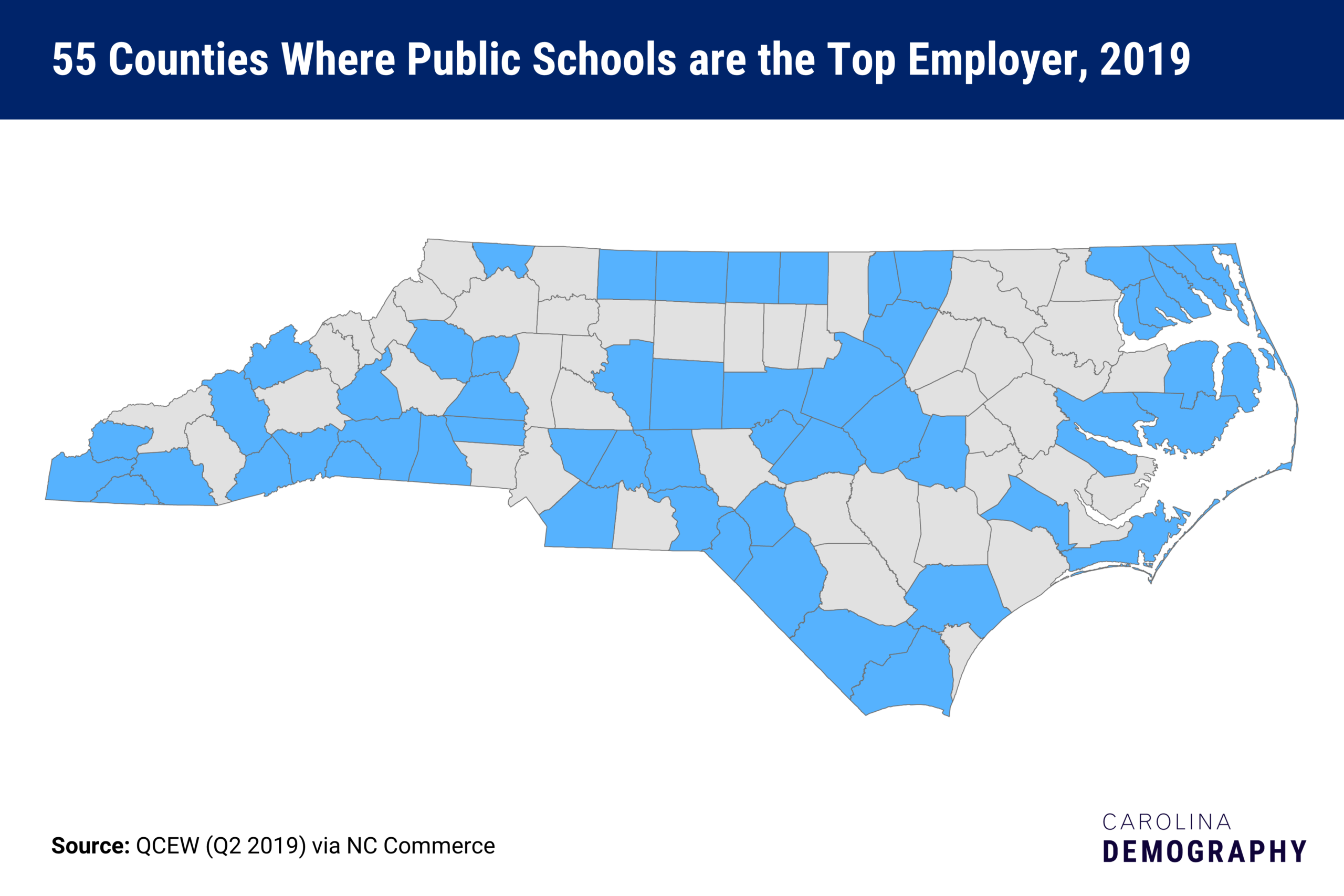
Manufacturing remains a sizable and diverse industry in North Carolina. Manufacturers were the largest employer in twelve counties in 2019 (Q2) – up from 11 in 2014.
Half of these were food manufacturers – Bertie (Perdue), Bladen (Smithfield), Duplin (Butterball), Lenoir (Sanderson Farms), Sampson (Smithfield), and Wilkes (Tyson). Other industries included furniture (Davie County), paper (Washington), textiles (Yadkin), and healthcare equipment (Ashe, Nash).
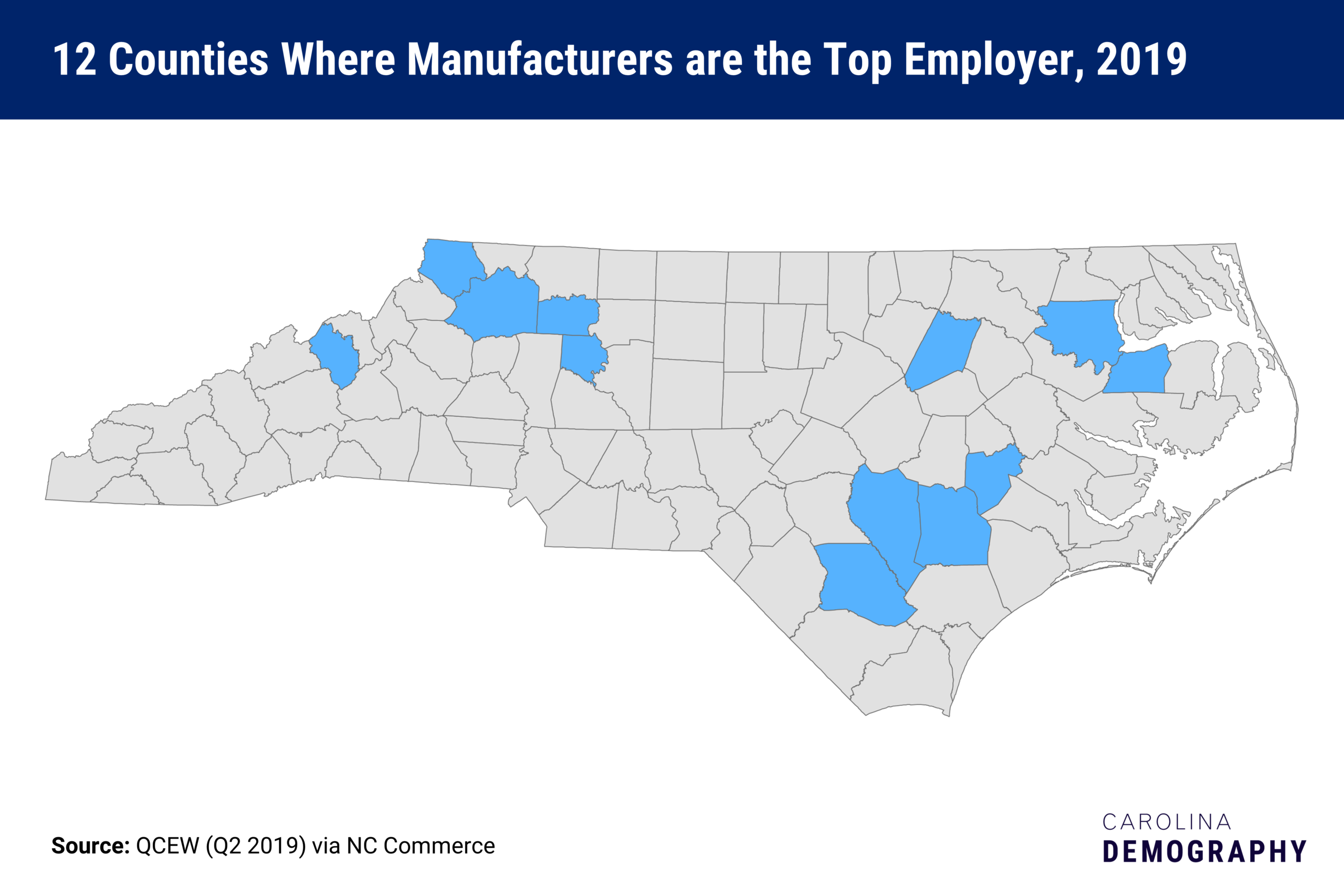
Twelve NC counties had a medical establishment as their largest employer. The majority of these were hospitals, while some were associated medical service providers, such as Labcorp in Alamance County.
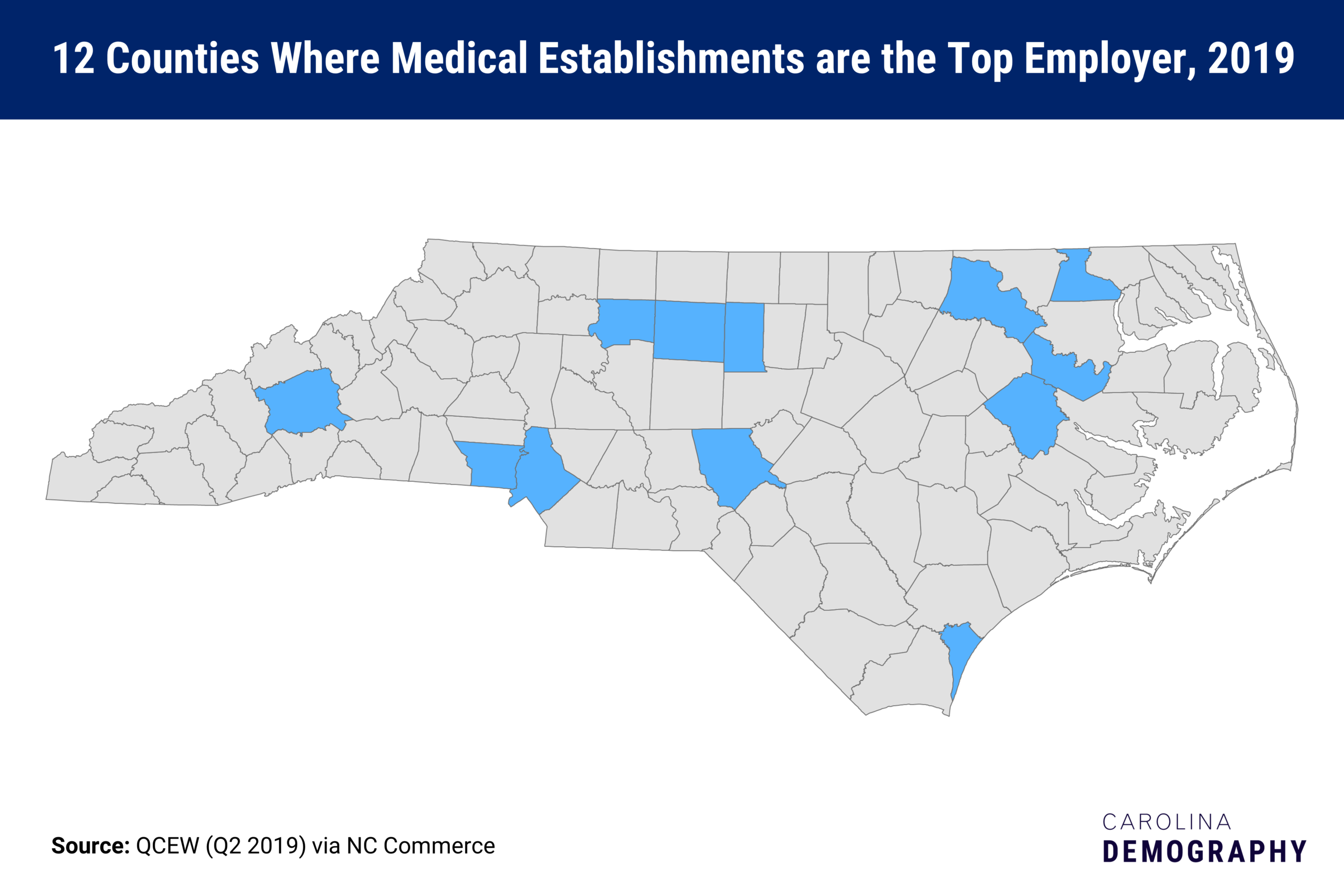
Public administrations – such as the Department of Public Safety – employed the most residents in seven NC counties. Three of these employed over 1,000 residents: the two State Departments of Health and Human Services (Burke, Granville) and the City of Rocky Mount municipal government in Edgecombe County.
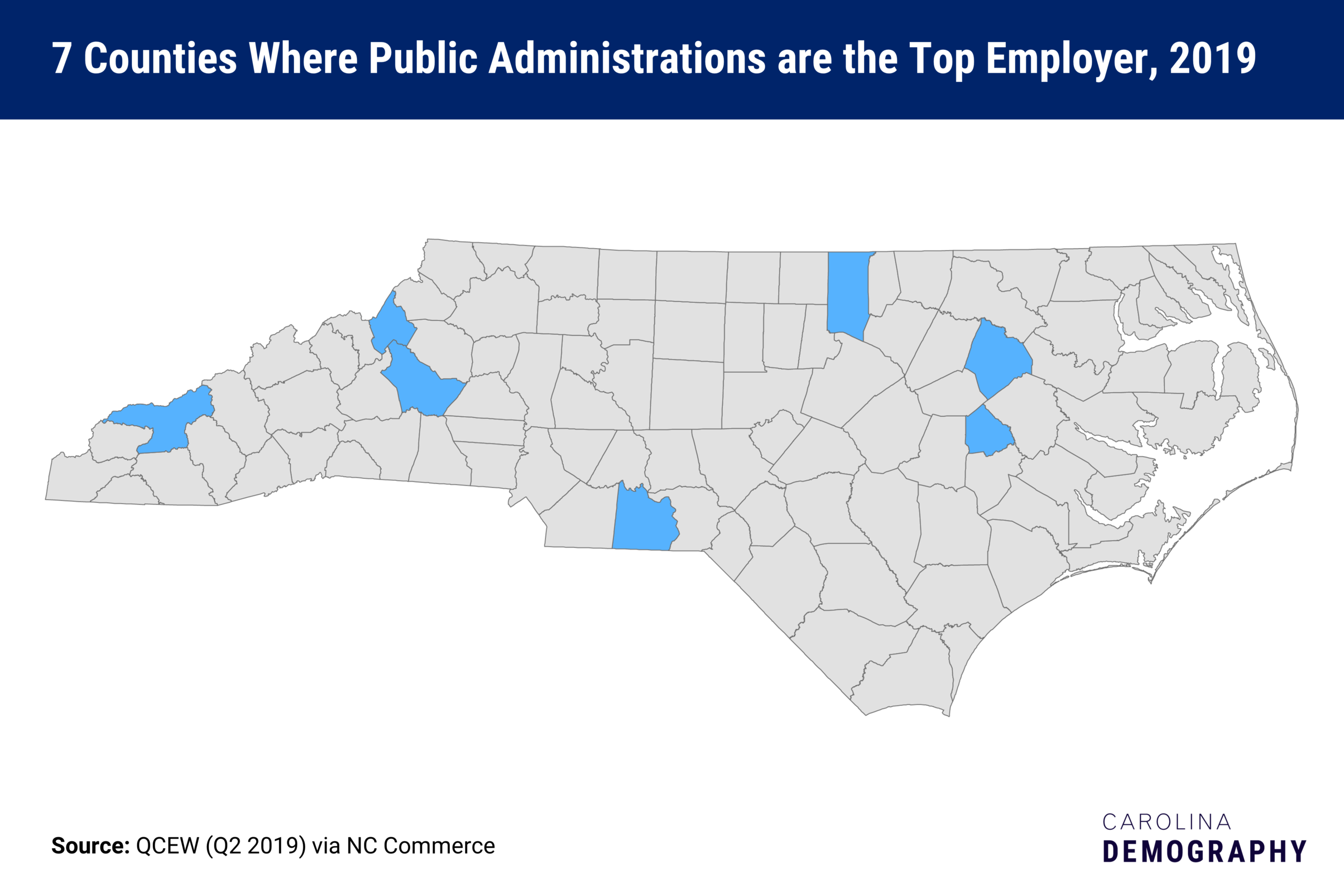
The UNC System is a leading employer statewide. Among North Carolina’s counties, there are four where a university employed the most residents: Durham (Duke), Jackson (Western Carolina), Orange (UNC-Chapel Hill), and Watauga (Appalachian State).
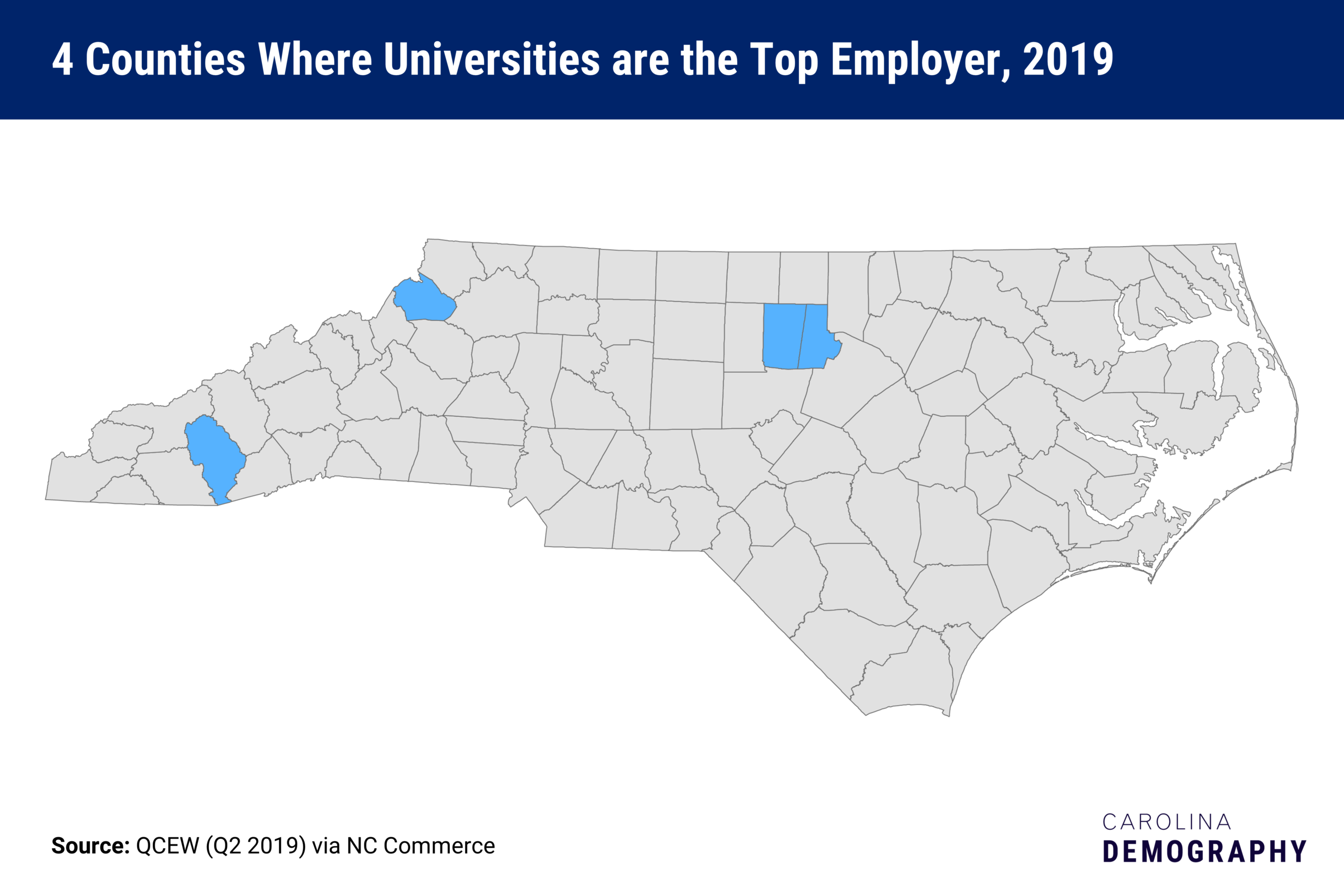
The military is a major employer in North Carolina, particularly in the three counties where the Department of Defense maintains operations: Craven (Cherry Point), Cumberland (Fort Bragg), and Onslow (Camp Lejeune).
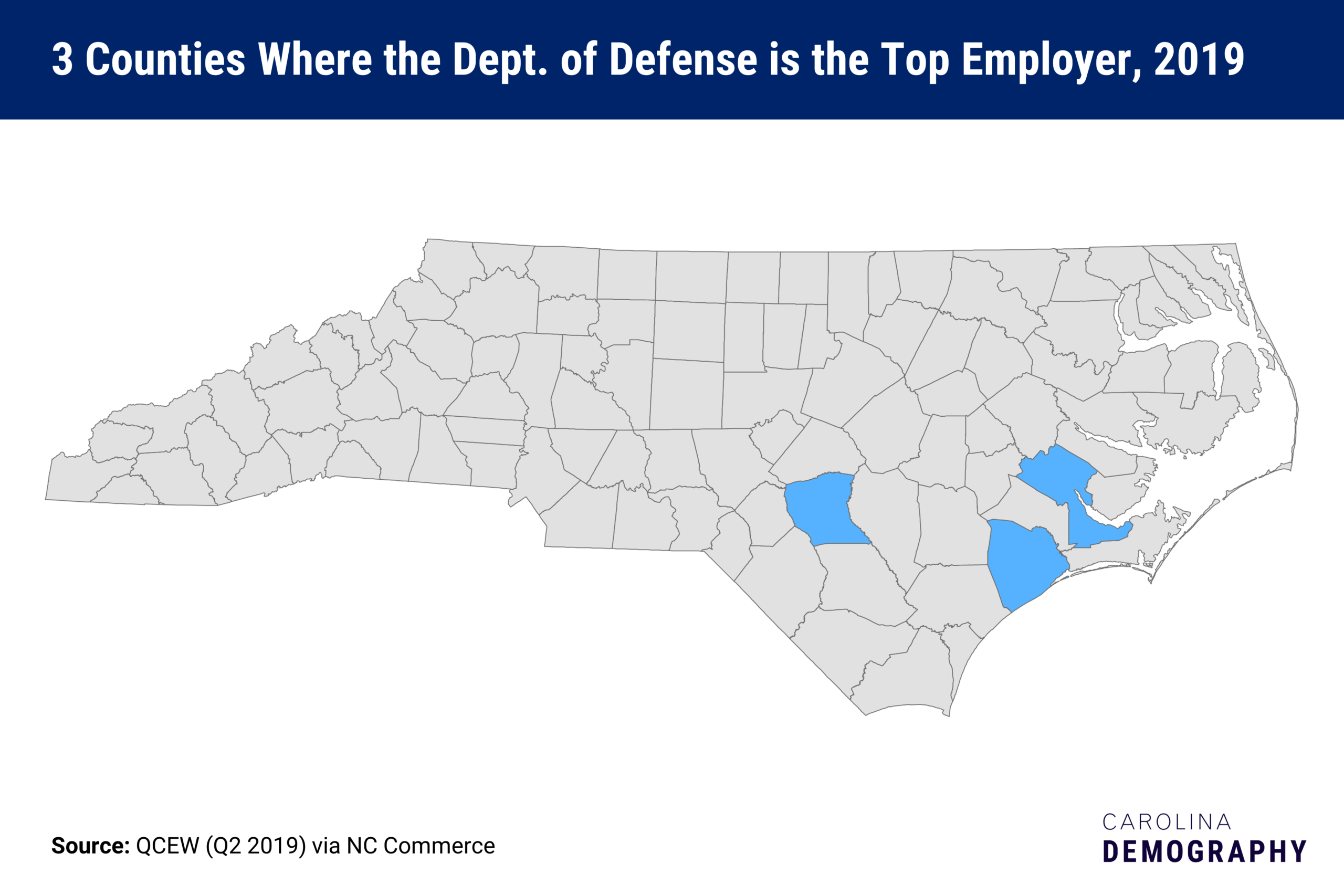
Seven counties in North Carolina were largely employed by other types of private businesses, ranging from the home improvement store Lowe’s in Iredell and Northampton counties to the bank BB&T in Wilson County.
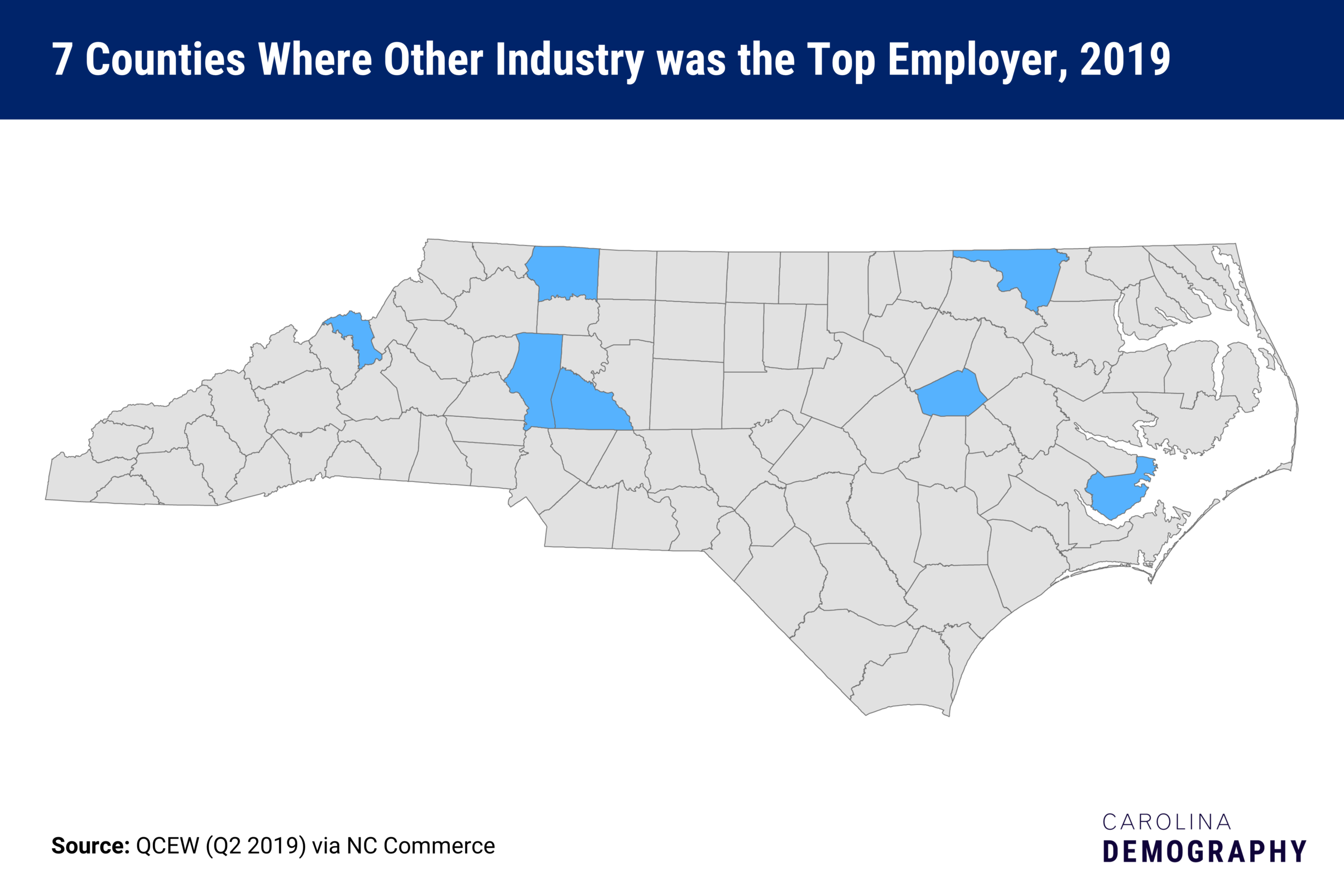
Need help understanding population change and its impacts on your community or business? Carolina Demography offers demographic research tailored to your needs.
Contact us today for a free initial consultation.
Contact UsCategories: NC in Focus

The Center for Women’s Health Research (CWHR) at the University of North Carolina School of Medicine released the 12th edition of our North Carolina Women’s Health Report Card on May 9, 2022. This document is a progress report on the…

Dr. Krista Perreira is a health economist who studies disparities in health, education, and economic well-being. In collaboration with the Urban Institute, she recently co-led a study funded by the Kate B. Reynolds Foundation to study barriers to access to…

Our material helped the NC Local News Lab Fund better understand and then prioritize their funding to better serve existing and future grant recipients in North Carolina. The North Carolina Local News Lab Fund was established in 2017 to strengthen…
Your support is critical to our mission of measuring, understanding, and predicting population change and its impact. Donate to Carolina Demography today.